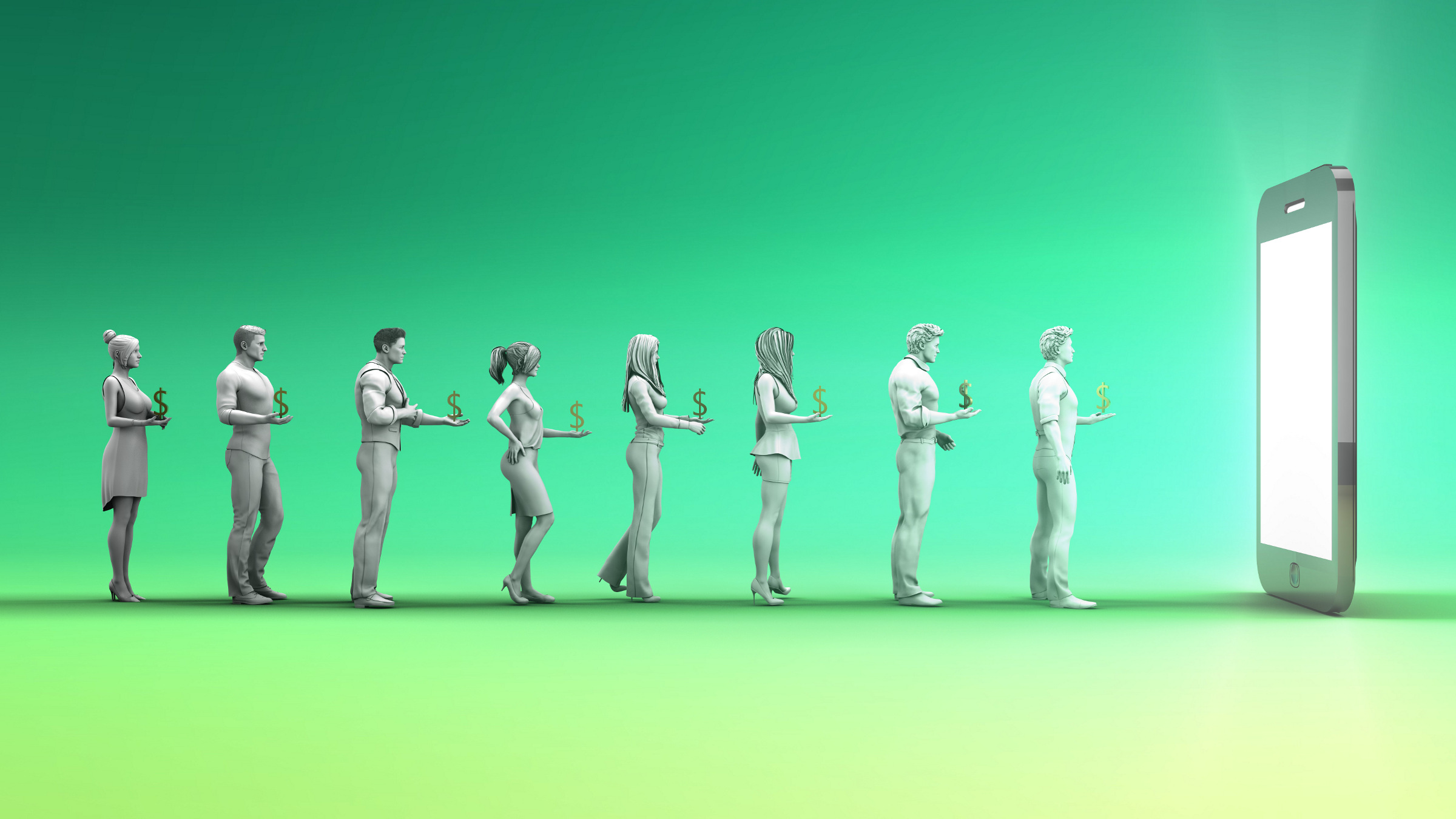Digitization is on everyone's lips. What does digitization mean and when did it begin?
What do text robots think about this question?
ChatGPT
"Digitization refers to the process of converting analog information into digital format, typically represented by binary code (0s and 1s). It involves the conversion of text, images, sound, and other forms of data into a digital form that can be stored, processed, and transmitted by computers.
The concept of digitization began to take shape with the invention of the computer and the development of binary code in the mid-20th century. However, the widespread digitization of information started to gain momentum in the late 20th century with the advent of technologies like scanners, which could convert physical documents and images into digital files.
The acceleration of digitization was further propelled by advancements in computing power, storage capabilities, and the rise of the internet. As technology evolved, industries began converting various forms of analog data into digital formats for easier storage, manipulation, and sharing, leading to the digital age we experience today."
Microsoft Bing
"Digitization is the process of converting information into a digital format. This includes converting analog signals, images, sounds, and documents into a series of numbers that describe a discrete set of points or samples. The digitized data is usually in the form of binary numbers, which facilitates processing by digital computers and other operations. Digitization is of crucial importance to data processing, storage, and transmission, because it allows information of all kinds in all formats to be carried with the same efficiency and also intermingled .
The history of digitization can be traced back to the advent of computers in the 1950s. Since then, digitization has transformed nearly everything into computer-friendly 1s and 0s and has changed the way we work, communicate, shop, bank, and even how we relax and entertain ourselves. Digitization has become increasingly important in recent years, as it allows for the preservation of fragile materials and creates more access points for patrons."
The most detailed answer comes from Bard:
Bard
"Digitization is the process of converting analog information into digital format. Analog information is continuous, like a sound wave or a photograph, while digital information is discrete, made up of bits and bytes. Digitization allows us to store, process, and transmit information in a more efficient and reliable way.
The first examples of digitization date back to the late 19th century, when Herman Hollerith developed a punch card system for tabulating data. In the early 20th century, Alan Turing developed the theoretical basis for computation, which led to the development of the first electronic computers in the 1940s. These computers were used to digitize a variety of information, including text, images, and sound.
The advent of personal computers in the 1970s and 1980s led to an explosion in digitization. Today, most of the information we create and consume is in digital form. Digitization has had a profound impact on our society, transforming everything from the way we work to the way we communicate.
Here are some of the benefits of digitization:
- Improved storage and retrieval: Digital information can be stored more efficiently and retrieved more easily than analog information.
- Increased accessibility: Digital information can be accessed from anywhere in the world, with an internet connection.
- Enhanced collaboration: Digital information can be shared and collaborated on more easily.
- Automation: Digital processes can be automated, which can save time and money.
- Innovation: Digitization has led to the development of new technologies and products.
However, digitization also has some potential drawbacks:
- Digital divide: Not everyone has access to digital technology, which can create a digital divide.
- Data security: Digital information is vulnerable to cyberattacks.
- Privacy concerns: The collection and use of personal data can raise privacy concerns.
Overall, digitization is a powerful tool that has had a profound impact on our society. It is important to be aware of both the benefits and drawbacks of digitization so that we can use this technology wisely."
Concluding remarks
Whether and to what extent the answers correspond to the facts will not be examined in detail here. The statement "Alan Turing developed the theoretical basis for computation, which led to the development of the first electronic computers in the 1940s" is questionable. Turing is not considered the inventor of the computer. The Roman abacus and the tally stick were already digital. The same applies to mechanical calculating machines, which were invented 400 years ago (Wilhelm Schickard, 1623). Mechanical Looms also used punched cards or punched tape (Basile Bochon, 1725). Punched card machines (Herman Hollerith, 1890) were widely used for decades. From the 1940s and 1950s, electromechanical and electronic program-controlled computing machines were developed in Germany, the U.K. and the U.S. There were several independent inventors. Digitization accelerated in the 1970s with the replacement of mechanics by microelectronics. The introduction of the Internet (Arpanet, 1969), the World Wide Web (Tim Berners-Lee, 1989), and the invention of the cell phone (iPhone, 2007) provided a major boost, see also When Did the Digital Age Begin? | BLOG@CACM | Communications of the ACM Thanks to powerful computers, huge amounts of data and artificial intelligence, which first appeared in the 1950s, development is progressing ever faster.
References
Aspray, William (ed.): Computing before computers, Iowa State University Press, Ames, Iowa 1990, x, 266 pages
Bauer, Friedrich: Origins and foundations of computing, Springer-Verlag, Berlin, Heidelberg 2010, viii, 142 pages
Bruderer, Herbert: Meilensteine der Rechentechnik, De Gruyter Oldenbourg, Berlin/Boston, 3. Auflage 2020, Band 1, 970 Seiten, 577 Abbildungen, 114 Tabellen, https://doi.org/10.1515/9783110669664
Bruderer, Herbert: Meilensteine der Rechentechnik, De Gruyter Oldenbourg, Berlin/Boston, 3. Auflage 2020, Band 2, 1055 Seiten, 138 Abbildungen, 37 Tabellen, https://doi.org/10.1515/9783110669671
Bruderer, Herbert: Milestones in Analog and Digital Computing, Springer Nature Switzerland AG, Cham, 3rd edition 2020, 2 volumes, 2113 pages, 715 illustrations, 151 tables, translated from the German by John McMinn, https://doi.org/10.1007/978-3-030-40974-6
Davis, Martin: The universal computer. The road from Leibniz to Turing, CRC Press, Boca Raton, Florida, London etc. 2012, xiv, 224 pages
Goldstine, Herman Heine: The computer from Pascal to von Neumann, Princeton University Press, Princeton, New Jersey 1993, xii, 378 pages
Moreau, René: The computer comes of age. The people, the hardware, and the software, MIT Press, Cambridge, Massachusetts 1986, 226 pages
Randell, Brian (ed.): The origins of digital computers. Selected papers, Springer-Verlag, Berlin, Heidelberg etc., 3rd edition 1982, xvi, 580 pages
Rojas, Raul: Konrad Zuse's early computers. The quest for the computer in Germany, Springer Nature Switzerland AG, Cham 2023, xx, 229 pages
Williams, Michael Roy: A history of computing technology, IEEE Computer Society Press, Los Alamitos, California, 2nd edition 1997, xi, 426 pages
Herbert Bruderer (herbert.bruderer@bluewin.ch; bruderer@retired.ethz.ch) is a retired lecturer in the Department of Computer Science at ETH Zurich and a historian of technology.




Join the Discussion (0)
Become a Member or Sign In to Post a Comment